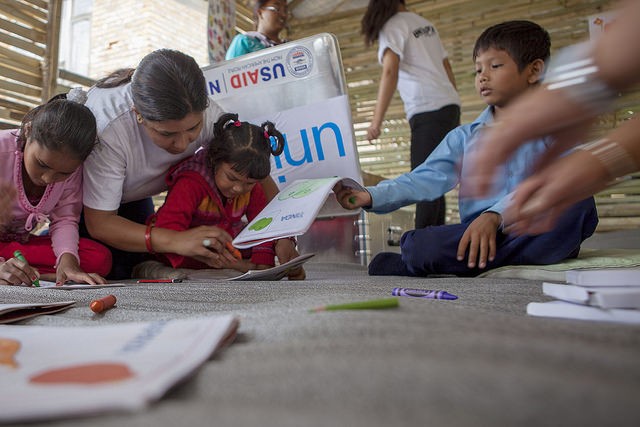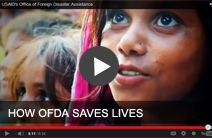- What We Do
- Agriculture and Food Security
- Democracy, Human Rights and Governance
- Economic Growth and Trade
- Education
- Ending Extreme Poverty
- Environment and Global Climate Change
- Gender Equality and Women's Empowerment
- Global Health
- Water and Sanitation
- Working in Crises and Conflict
- Disaster Assistance
- Political Transition Initiatives
- Conflict Mitigation and Prevention
- Countering Violent Extremism
- Disaster Risk Reduction
- Peacebuilding and Reconciliation
- Providing Safe & Secure Environments for Development
- Recovering From Crisis
- Resilience
- Tech Challenge for Atrocity Prevention
- World Humanitarian Day
- U.S. Global Development Lab
When crisis strikes, Americans are among the first to offer assistance to those in need.
The best way to help those affected by a disaster overseas is to make a monetary donation to a reputable humanitarian organization working in the disaster zone.
As a U.S. government agency, USAID does not accept donations for its crisis response efforts, but non-governmental organizations may issue appeals for donations depending on the crisis.
There are several ways to identify reputable, established organizations that make the most of monetary or material donations:
- The Center for International Disaster Information (CIDI) posts lists of organizations that are responding to particular disasters.
- InterAction, a coalition of non-profit humanitarian organizations, frequently posts list of responding members on its website.
- The United Nations maintains a website called ReliefWeb, a repository of information listed by disaster, submitted by responding humanitarian organizations.
- GlobalGiving may list disaster-recovery projects that would benefit from public support.
- "Watchdog” organizations that offer information on responding organizations include: The Better Business Bureau's Wise Giving Alliance, The American Institute of Philanthropy, GuideStar, and Charity Navigator.
- News and search engine websites may have lists of responding organizations, including CNN, MSN, Google, Yahoo, or your local newspaper or television station websites.
Organizations that would like to become USAID disaster response partners may learn more about submitting an unsolicited proposal here. Organizations interested in providing emergency food assistance can learn more here.
Vendors who are interested in providing commodities or transportation services to USAID can learn more here.









Comment
Make a general inquiry or suggest an improvement.